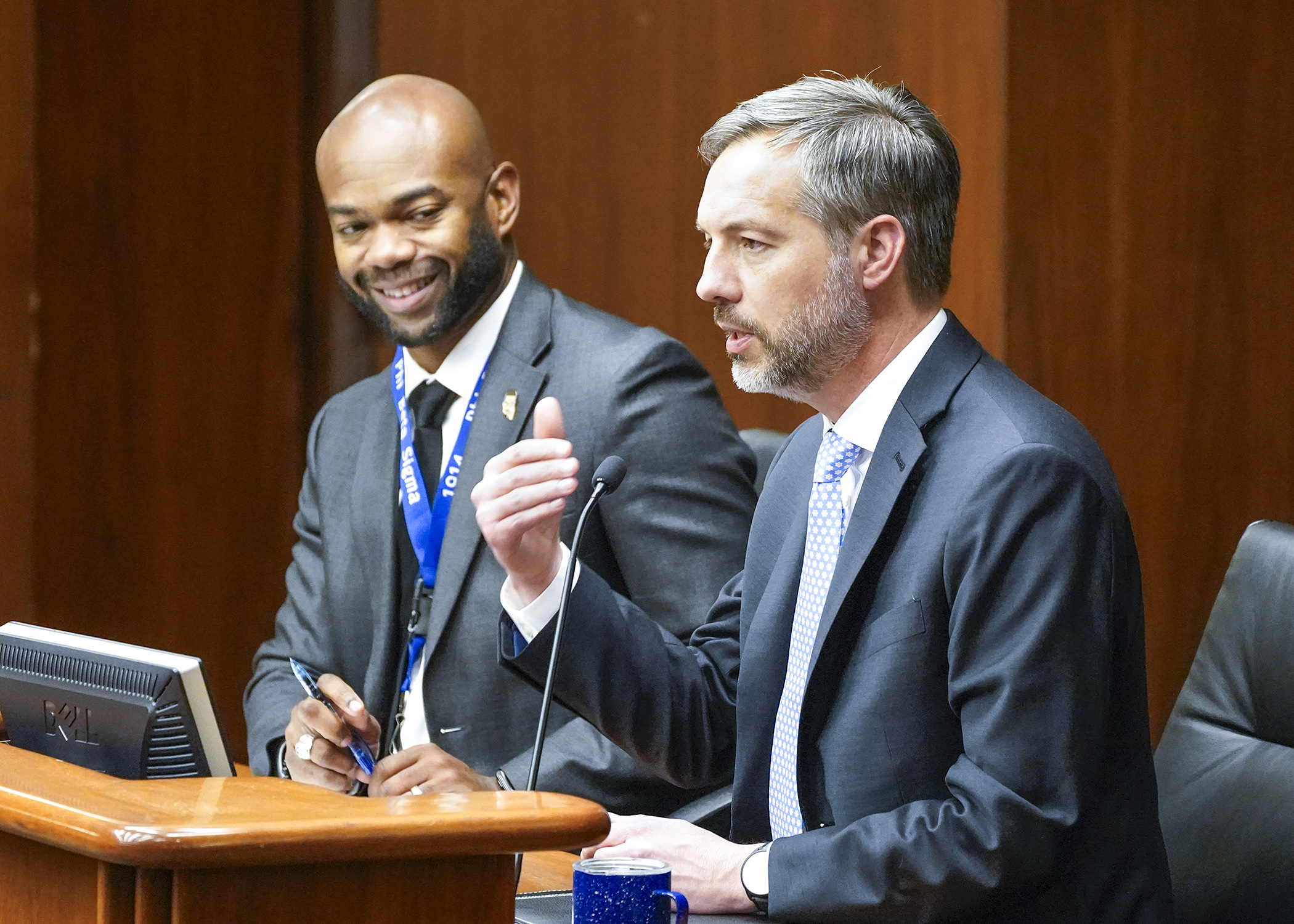House workforce panel approves proposed updates to paid leave law

It’s been nearly a year since the Paid Family and Medical Leave Act became law, and officials from the department in charge of implementing it are asking for changes to help manage issues that have come up.
Those requests come in the form of HF5363, sponsored by Rep. Cedrick Frazier (DFL-New Hope).
The House Workforce Development Finance and Policy Committee approved the bill, as amended, Wednesday evening and sent it to the House Judiciary Finance and Civil Law Committee. It is scheduled to be addressed there Monday.
The bill proposes changes to a state-run insurance program created by law in 2023 that would provide Minnesota workers with up to 20 weeks per year of paid time off to deal with family or medical issues.
Frazier calls the law “a great safety net” to keep workers from having to choose between staying on the job to collect a paycheck and caring for a loved one.
A new tax of 0.7% of an employee’s wages, at least half of which would be paid by the employer, would ultimately fund the insurance account beginning Jan. 1, 2026.
That’s also the date benefits would be available to an employee unable to work due to a family member’s serious health condition, a qualifying exigency, safety leave, bonding leave, or the employee’s own pregnancy, pregnancy recovery, or serious health condition.
In a presentation, officials from the Department of Employment and Economic Development outlined the proposed changes, including changing the name of the program from Paid Family and Medical Leave to Minnesota Paid Leave.
The new brand “translates easily and clearly,” said Deputy Commissioner Evan Rowe, and simplifies communications and education with employers and workers.
That was not a controversial proposal, but that was not the case when Rowe and Commissioner Matt Varilek testified that there are “alternative ways to read the treatment of the initial week” in the 2023 law.
The department’s interpretation is the initial week would be fully paid if an individual has fewer than 80 hours of personal time off available, and partially paid if between 80-120 hours are available.
But that was nixed by an amendment, and an oral amendment to the amendment, successfully offered by Frazier that removed the department’s interpretation from the bill.
That deletion sat well with labor leaders who came to speak out against the department’s proposed change.
“The first week of medical leave is vital for all Minnesotans,” said Brad Lehto, Minnesota AFL-CIO secretary-treasurer. “Minnesotans need to care for a loved one all the time, whether it’s a child in the hospital or yourself.”
Rep. Dave Baker (R-Willmar) is concerned the bill does not propose changes to make the law less burdensome for small business owners.
He said small employers will struggle under the law, especially if they don’t have enough employees on staff to cover the duties of those taking paid leave or to quickly hire new workers to assume work duties.
Baker and other Republicans also expressed concern the department might not have all the IT systems in place to allow businesses to transmit payroll deductions in time for the scheduled January 2026 launch.
Rowe said the department is on schedule to deliver on the IT systems and noted that system development is rather straightforward because it is modeled after systems employers have successfully used for decades to input their Unemployment Insurance payroll deductions to the state.
Related Articles
Search Session Daily
Advanced Search OptionsPriority Dailies
Speaker Emerita Melissa Hortman, husband killed in attack
By HPIS Staff House Speaker Emerita Melissa Hortman (DFL-Brooklyn Park) and her husband, Mark, were fatally shot in their home early Saturday morning.
Gov. Tim Walz announced the news dur...
House Speaker Emerita Melissa Hortman (DFL-Brooklyn Park) and her husband, Mark, were fatally shot in their home early Saturday morning.
Gov. Tim Walz announced the news dur...
Lawmakers deliver budget bills to governor's desk in one-day special session
By Mike Cook About that talk of needing all 21 hours left in a legislative day to complete a special session?
House members were more than up to the challenge Monday. Beginning at 10 a.m...
About that talk of needing all 21 hours left in a legislative day to complete a special session?
House members were more than up to the challenge Monday. Beginning at 10 a.m...